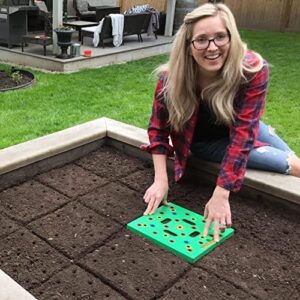In the world of agriculture, we are currently experiencing a revolution that is changing the way we grow our food. This is known as The Green Revolution Redux, and it is driven by advances in plant science that are transforming the way we approach agriculture.
The original Green Revolution, which took place in the mid-20th century, revolutionized agriculture by introducing high-yielding varieties of crops, synthetic fertilizers, and pesticides. This led to a significant increase in food production and helped to alleviate hunger in many parts of the world.
However, the Green Revolution also had its drawbacks. The excessive use of fertilizers and pesticides led to environmental degradation and health issues, and the focus on a few high-yielding crops led to a loss of biodiversity. In addition, many small farmers were left behind as they lacked access to the expensive inputs needed to participate in the Green Revolution.
The Green Revolution Redux seeks to address these issues by harnessing the power of plant science to develop more sustainable and resilient agricultural systems. Plant scientists are using cutting-edge technologies such as CRISPR-Cas9 gene editing, RNA interference, and precision breeding to develop crops that are more nutritious, resistant to pests and diseases, and better adapted to changing climate conditions.
One of the key goals of the Green Revolution Redux is to ensure food security for a growing global population. By developing crops that are more productive and resilient, plant scientists are helping to ensure that we can produce enough food to feed the world’s population, which is expected to reach 9.7 billion by 2050.
Another important aspect of the Green Revolution Redux is its focus on sustainability. Plant scientists are developing crops that require fewer inputs such as water, fertilizers, and pesticides, reducing the environmental impact of agriculture. They are also working to promote agroecological practices that enhance biodiversity, improve soil health, and reduce greenhouse gas emissions.
One example of how plant science is transforming agriculture is the development of genetically modified (GM) crops. GM crops have been engineered to express traits such as resistance to pests and diseases, tolerance to drought and salinity, and improved nutritional content. These crops have the potential to significantly increase food production while reducing the need for chemical inputs.
Another promising innovation in plant science is the use of precision breeding techniques to develop new crop varieties. Precision breeding involves the use of markers to identify desirable traits in plants and then using traditional breeding methods to transfer those traits into new varieties. This allows plant scientists to develop crops that are better adapted to specific growing conditions, such as drought-prone regions or saline soils.
In addition to developing new crop varieties, plant scientists are also working to optimize farming practices to improve productivity and sustainability. For example, researchers are studying the microbiome of plants to understand how beneficial microbes can improve plant health and productivity. They are also exploring the use of precision agriculture techniques, such as drones and sensors, to monitor crops and optimize inputs in real time.
The Green Revolution Redux is not just about developing new technologies, it is also about ensuring that these technologies are accessible to smallholder farmers in developing countries. Organizations such as the Consultative Group on International Agricultural Research (CGIAR) are working to ensure that small farmers have access to the latest agricultural innovations and can benefit from the advances in plant science.
Ultimately, the Green Revolution Redux has the potential to transform agriculture and help us address the challenges of feeding a growing global population in a sustainable way. By harnessing the power of plant science, we can develop crops that are more productive, resilient, and nutritious, and ensure that agriculture is environmentally sustainable and socially equitable.
As consumers, we can also play a role in supporting the Green Revolution Redux by choosing to purchase sustainably produced food, supporting agricultural research, and advocating for policies that promote sustainable agriculture. Together, we can help to build a more resilient and sustainable food system for future generations.






